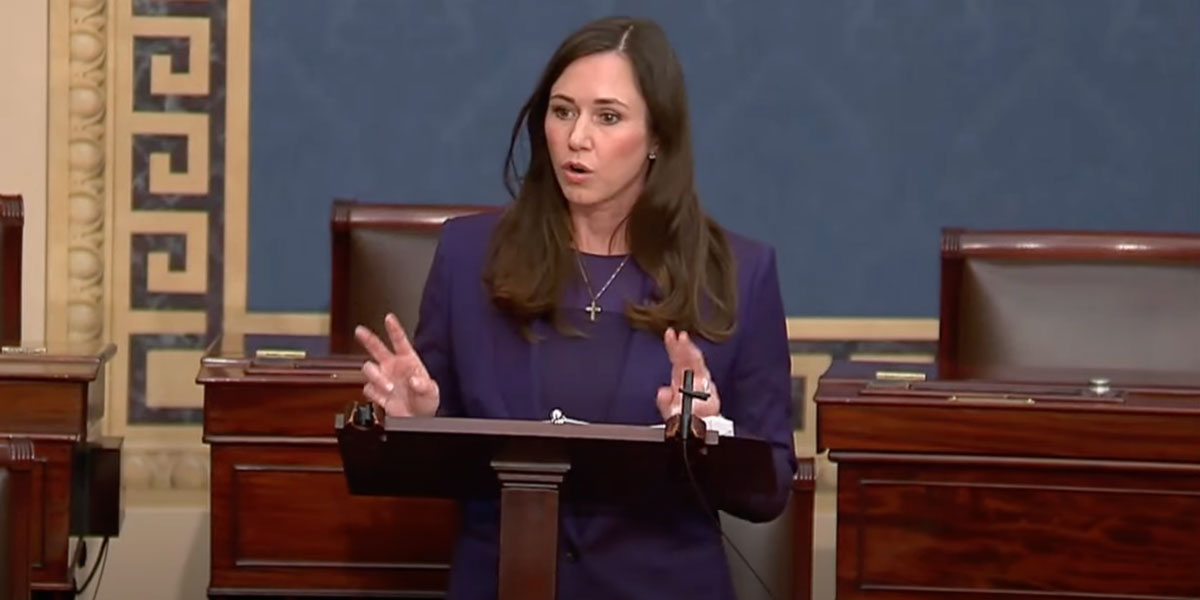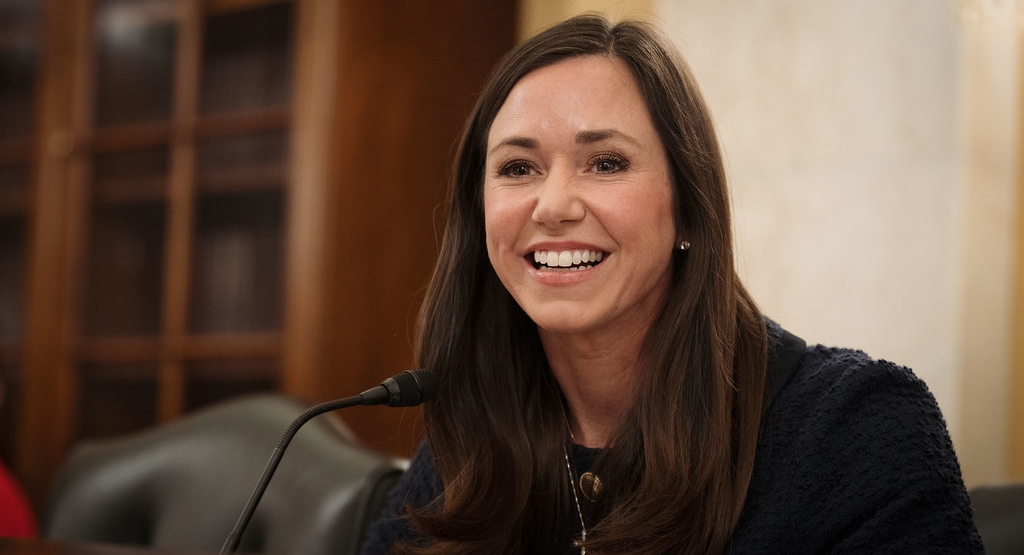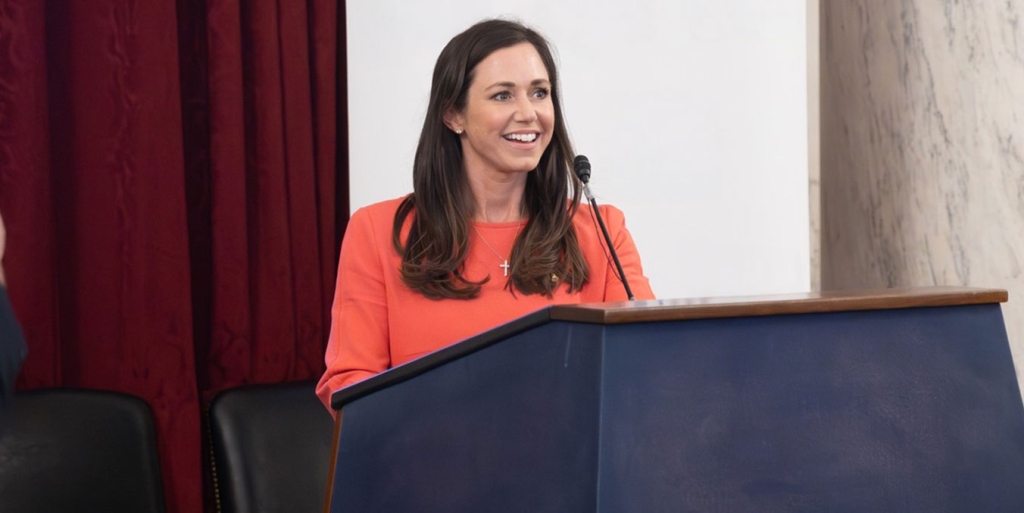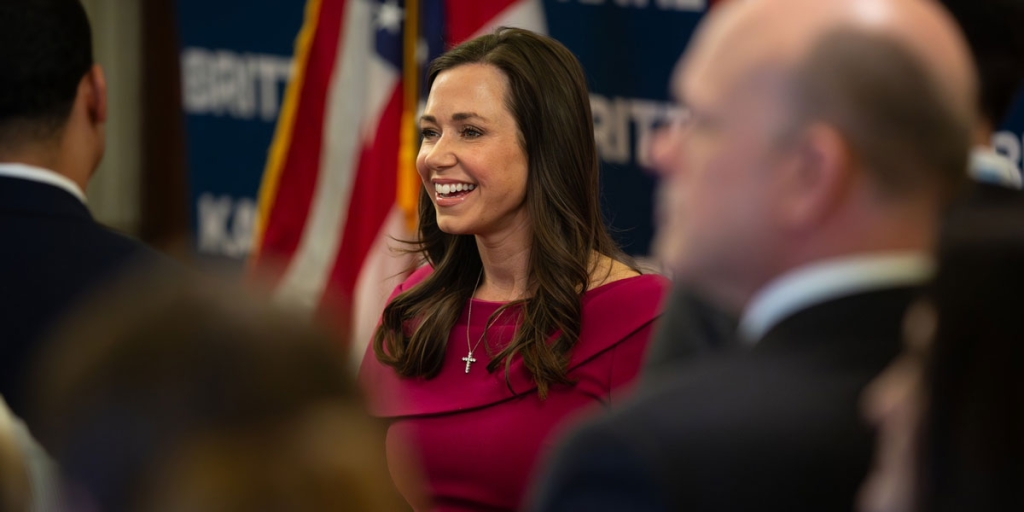U.S. Senator Katie Britt is pushing for the implementation of “common sense solutions” to fight the youth mental health crisis that has been made worse by the widespread use of social media.
As part of her effort, the lawmaker from Alabama has reintroduced legislation that she believes will help protect the country’s youth from the damaging effects of unregulated social media usage.
The Kids Off Social Media Act would prohibit social media platforms from allowing children under the age of 13 to create or maintain social media accounts; prohibit social media companies from pushing targeted content using algorithms to users under the age of 17; provide the Federal Trade Commission and state attorneys general authority to enforce the provisions of the bill; and follow existing Children’s Internet Protection Act framework, with changes, to require schools to work in good faith to limit social media on their federally-funded networks.
Britt (R-Montgomery) underscored the need and urgency for her legislation.
“There’s no doubt our country is in the throes of a mental health crisis, and the rise of social media usage among children and teenagers is inextricably tied to this issue,” said Britt. “As a mom, this is something my own kids and their friends have to contend with every day. And as a Senator, I know our nation has to contend with it to safeguard the next generation. Putting in place commonsense guardrails that protect our kids from the dangers of social media is critical for their future and America’s future. I’m committed to working with my colleagues on both sides of the aisle to put parents in the driver’s seat and enact commonsense, age-appropriate solutions to tackle this generational challenge.”
Last week, Britt took to the Senate floor to advocate for the legislation. This time she addressed shocking data relating to the youth mental health crisis and its significant link to social media usage.
“Emergency room visits amongst adolescents for anxiety, mood disorders, and self-harm have all risen dramatically in the years since social media apps exploded onto the scene. Over that same time period and during the second decade of this century, rates of depression among teenagers more than doubled. By 2019, 20% of teenagers agreed with the notion that, quote, ‘life often feels meaningless,’ almost a 100% increase from a decade earlier. According to the CDC in 2021 . . . 1 in 3 high school young women said she actually considered death by suicide; 25% of teenage girls made a plan to do so; 9% of high schoolers and 13% of teenage girls actually attempted death by suicide.”
In her remarks, Britt noted that there hasn’t been legislation addressing children and the internet signed into law since 1998
“While social media companies have taken some steps, it is clear that there is work for Congress to do,” said Britt. “Almost 30 years ago, the Children’s Online Privacy Protection Act was signed into law. For reference, at the time that the law was signed, MySpace didn’t even exist. It’s time for an update and there is a clear place to start.”
The bill will ensure that companies can no longer use targeting algorithms on minors.
“The Kids of Social Media Act would also prevent platforms from feeding targeted content picked by an algorithm to users under the age of 17,” Britt said. “For anyone who’s curious about why that’s in the bill, all you have to do is ask a teenager, especially a teenage girl. Former U.S. Senate Surgeon General Vivek Murthy wrote that nearly half of all adolescents say that social media makes them feel worse about their bodies.”
A survey conducted by Count on Mothers shows that over 90 percent of mothers agree that there should be a minimum age of 13 for social media. Additionally, 87 percent of mothers agree that social media companies should not be allowed to use personalized recommendation systems to deliver content to children.
Austen Shipley is the News Director for Yellowhammer News. You can follow him on X @ShipleyAusten













